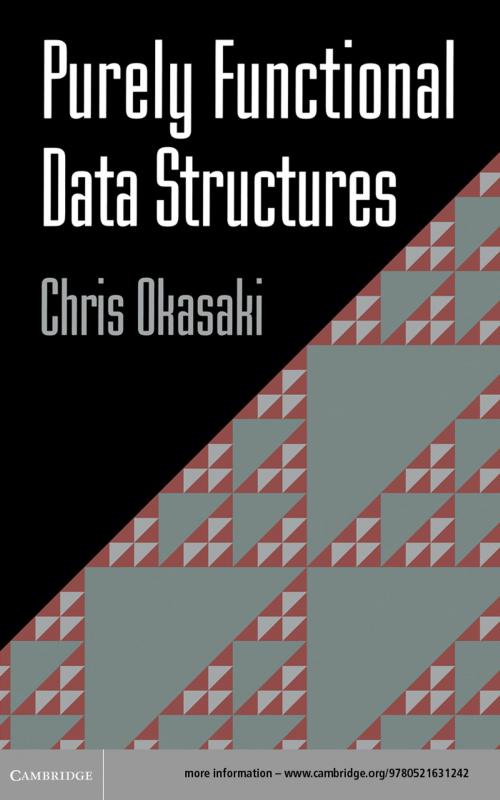Purely Functional Data Structures
Nonfiction, Computers, Database Management, Programming, Programming Languages, General Computing| Author: | Chris Okasaki | ISBN: | 9781139636353 |
| Publisher: | Cambridge University Press | Publication: | April 13, 1998 |
| Imprint: | Cambridge University Press | Language: | English |
| Author: | Chris Okasaki |
| ISBN: | 9781139636353 |
| Publisher: | Cambridge University Press |
| Publication: | April 13, 1998 |
| Imprint: | Cambridge University Press |
| Language: | English |
Most books on data structures assume an imperative language like C or C++. However, data structures for these languages do not always translate well to functional languages such as Standard ML, Haskell, or Scheme. This book describes data structures from the point of view of functional languages, with examples, and presents design techniques so that programmers can develop their own functional data structures. It includes both classical data structures, such as red-black trees and binomial queues, and a host of new data structures developed exclusively for functional languages. All source code is given in Standard ML and Haskell, and most of the programs can easily be adapted to other functional languages. This handy reference for professional programmers working with functional languages can also be used as a tutorial or for self-study.
Most books on data structures assume an imperative language like C or C++. However, data structures for these languages do not always translate well to functional languages such as Standard ML, Haskell, or Scheme. This book describes data structures from the point of view of functional languages, with examples, and presents design techniques so that programmers can develop their own functional data structures. It includes both classical data structures, such as red-black trees and binomial queues, and a host of new data structures developed exclusively for functional languages. All source code is given in Standard ML and Haskell, and most of the programs can easily be adapted to other functional languages. This handy reference for professional programmers working with functional languages can also be used as a tutorial or for self-study.















